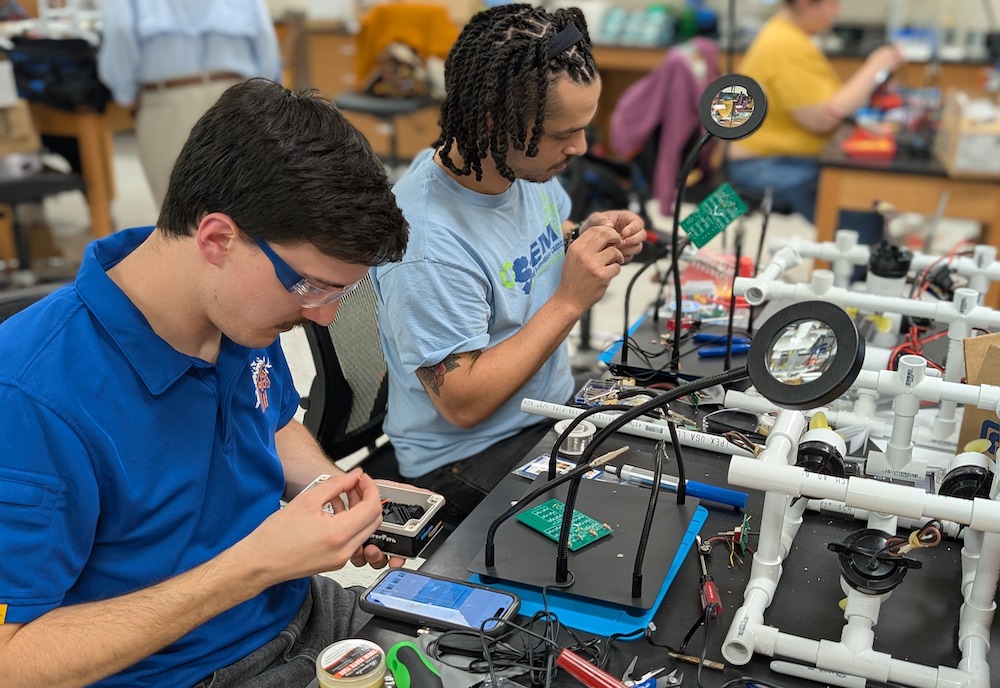By Matthew Cimitile, University Communications and Marketing, and Chris Sharp, FIO
This past weekend, middle and high school teachers came from across Florida to build and test remotely operated vehicles (ROVs) and learn more about the world of underwater robotics and engineering.
Hosted by USF’s Florida Institute of Oceanography (FIO) in collaboration with Marine Technology Society’s MATE (Marine Advanced Technology Education) Program, the workshop equipped educators with skills to integrate underwater robotics into their classrooms and inspire the next generation of problem solvers and innovators. Over two intensive days, participants immersed themselves in the fundamentals of underwater robotics, including designing, building and testing remotely operated vehicles on the USF St. Petersburg campus.
The workshop culminated in an exciting demonstration at the campus’ pool facility, where around 25 teachers tested and fine-tuned their ROVs. Attendees also explored strategies to engage students in STEM learning through hands-on activities and real-world applications of marine technology.
"One of our core missions is to cultivate and inspire the next generation of marine science and technology leaders here in Florida," said Monty Graham, director of FIO. "Our collaboration with MATE plays a pivotal role in achieving this goal by providing both teachers and young minds with invaluable, hands-on experiences and practical skills."
The workshop aligned with the mission of the MATE ROV Competition, which seeks to use underwater robotics to challenge students and educators to think critically, solve real-world problems and collaborate effectively. By equipping teachers with tools and knowledge, FIO and MATE aim to bring cutting-edge marine technology into classrooms, fostering curiosity and innovation among students.
“Our partners at FIO and USF offer great opportunities for students and educators to learn about and be a part of ocean sciences and exploration through the lens of technology,” said Jody Patterson, Marine Technology Society’s MATE Network development director. “Hosting this professional development workshop provides teachers with the training to support their students' development for the MATE ROV Competition, along with the tools and resources needed to implement robotics programs, courtesy of our sponsors at Motorola Solutions Foundation.”
Participants said they left the workshop inspired and prepared to share their newfound knowledge with their students. For many, the event highlighted the transformative power of experiential learning in STEM education.
“The workshop provided opportunities for STEM teachers to learn about robots used underwater and to consider ways to transform their instruction by promoting applications of STEM in marine and ocean sciences. Additionally, this workshop helped strengthen the USF STEM ecosystem by supporting teachers who can subsequently support the future workforce,” said Ruthmae Sears, USF professor of mathematics education and associate director of the Coalition for Science Literacy.
Sears participated in the workshop and plans to expand the training to her network of teachers in Pinellas and Hillsborough Counties.
The collaboration between FIO and MATE reflects a shared commitment to enhancing STEM education by introducing students to marine science and engineering. By bringing robotics workshops and future competition programs to Florida’s west coast, FIO and MATE hope to create further opportunities for educators to prepare their students for exciting careers in STEM fields.
